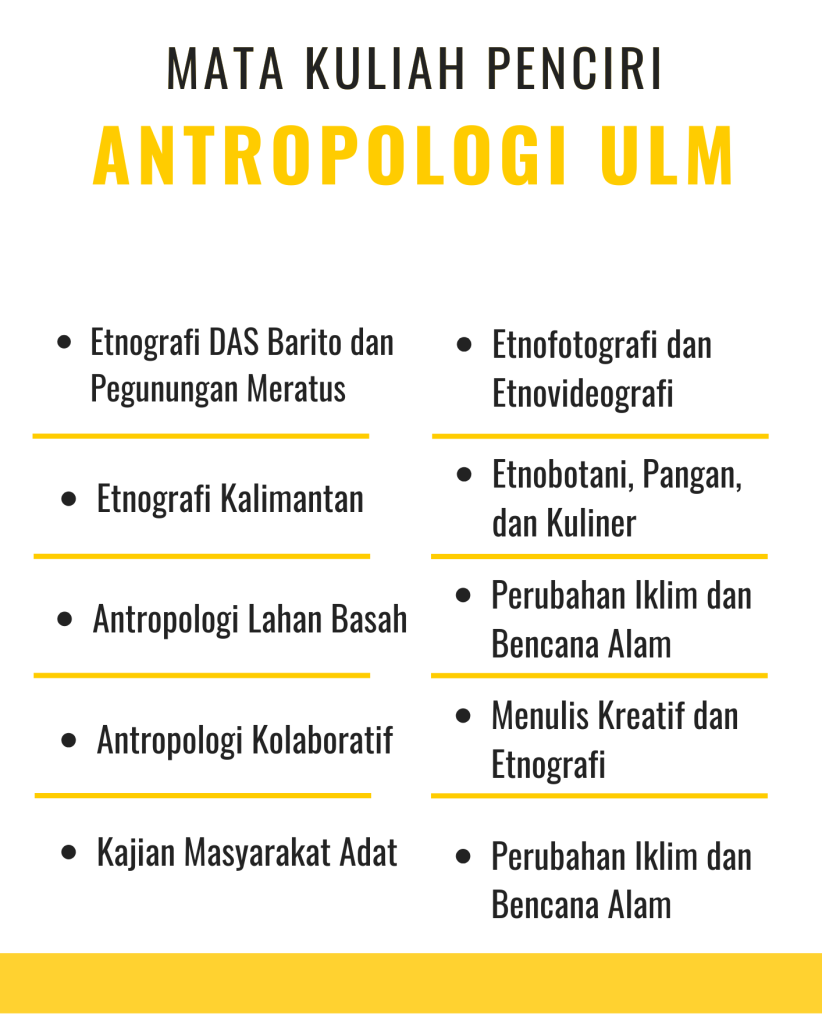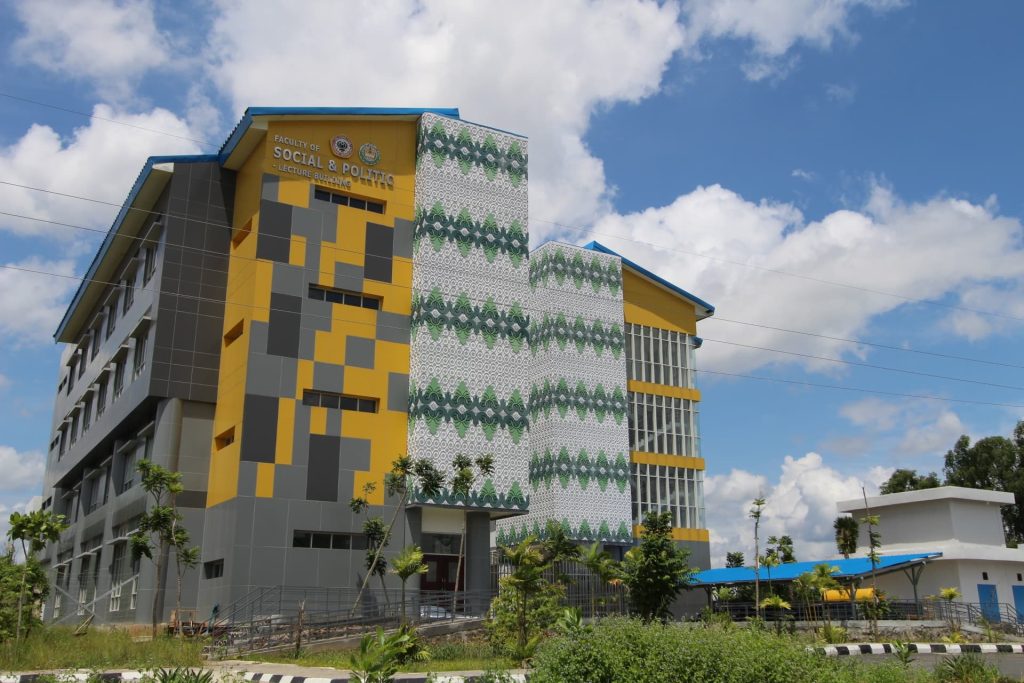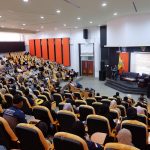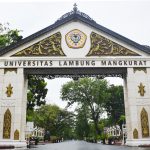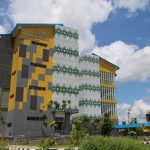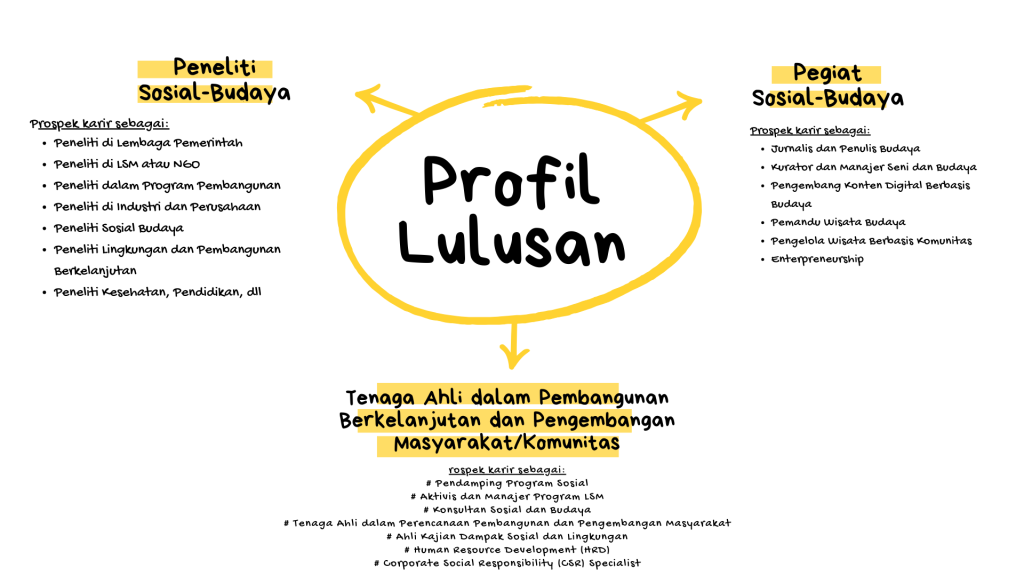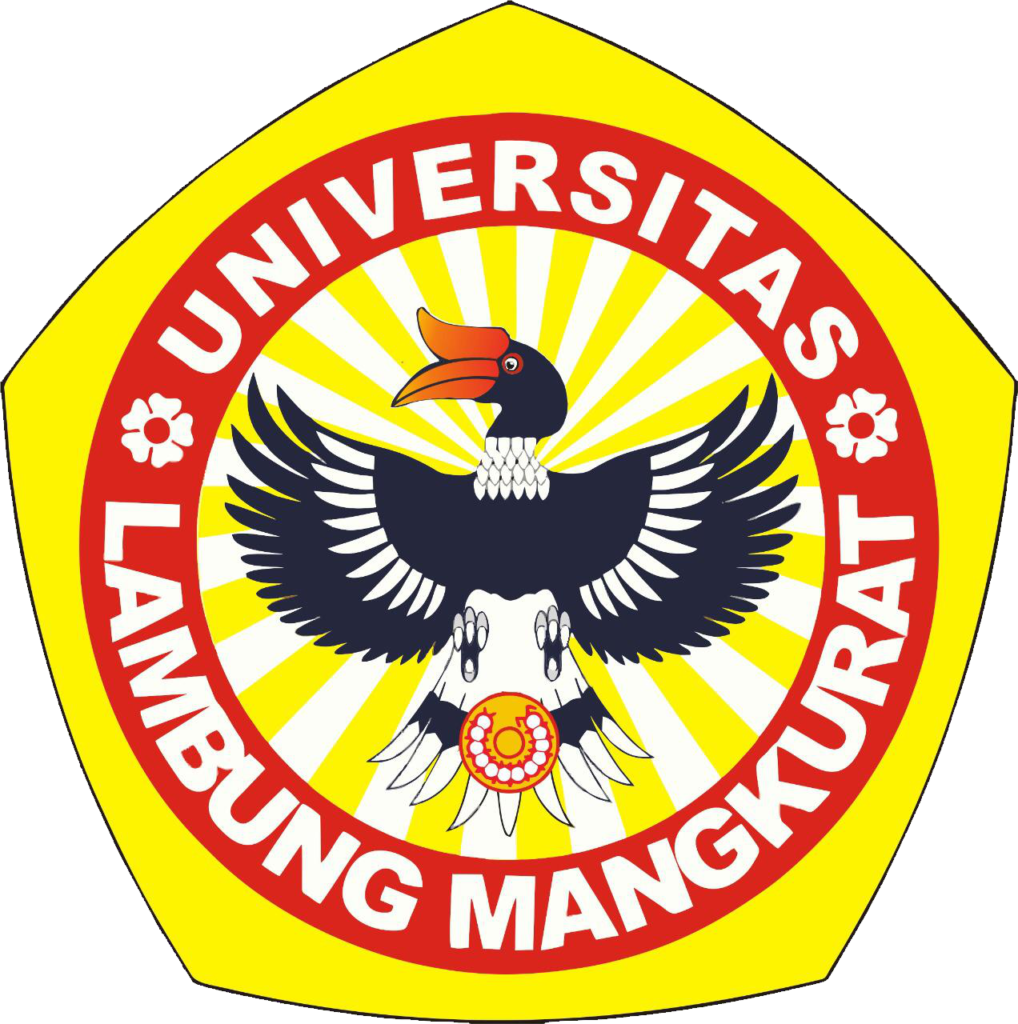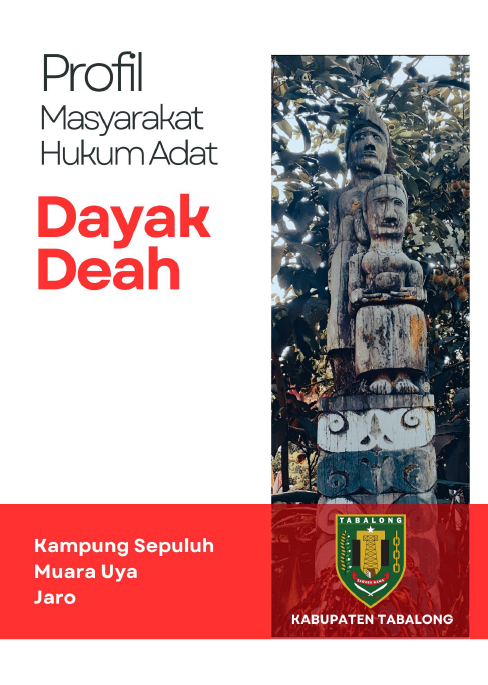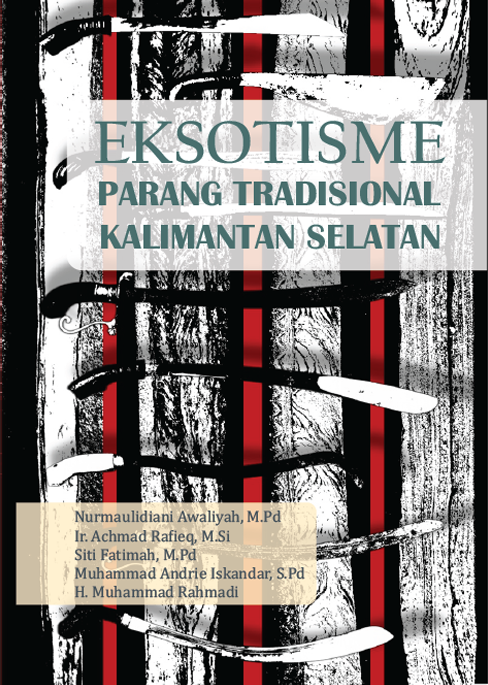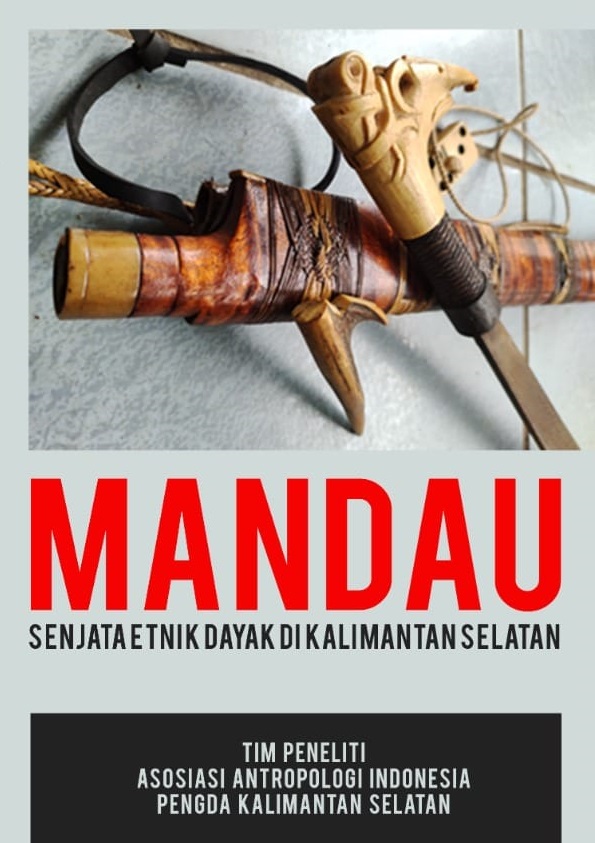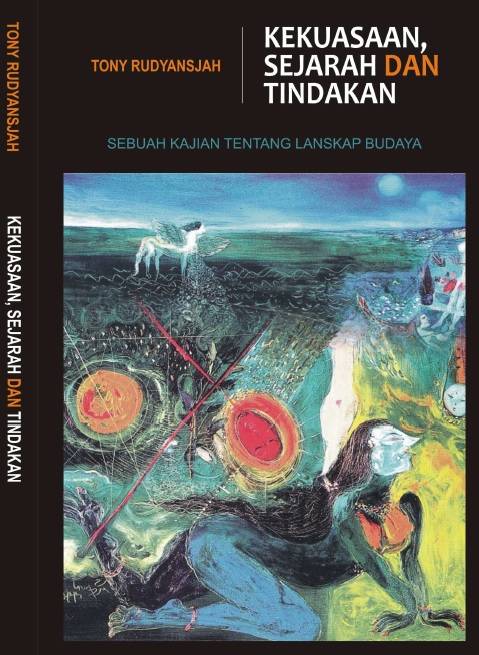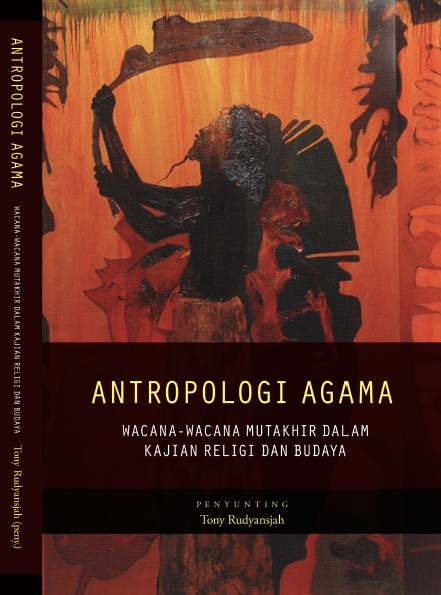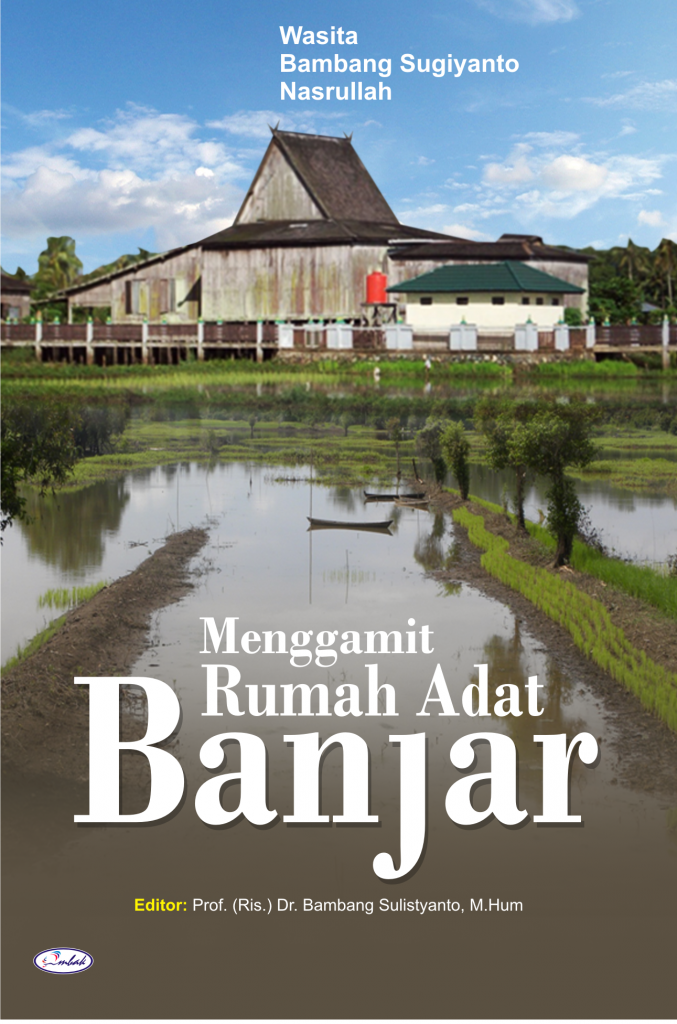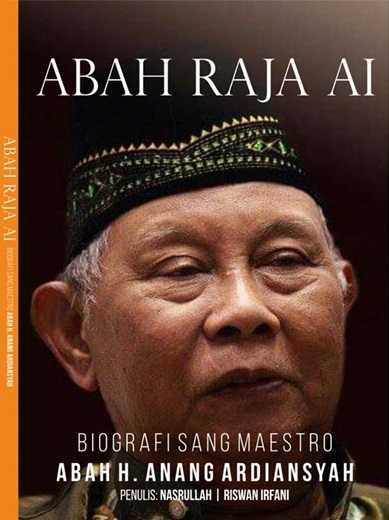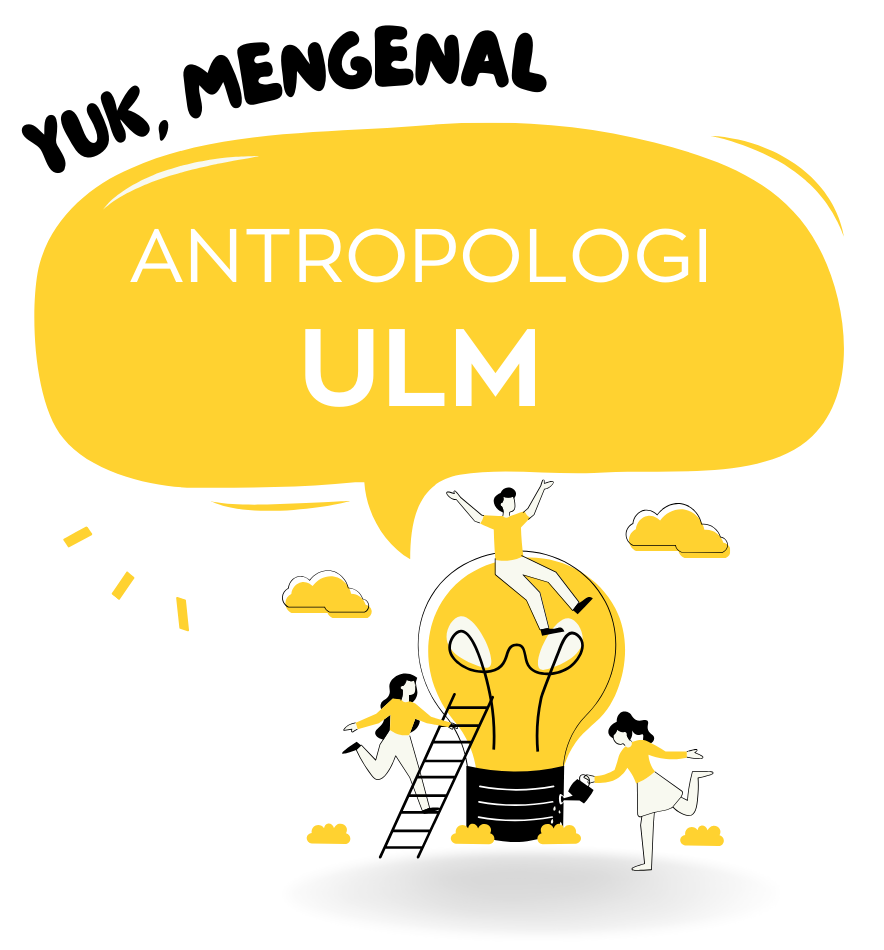
Tahukah Kamu?
ANTROPOLOGI berasal dari kata anthropos (manusia) dan logos (ilmu), yang berarti ilmu tentang manusia. Sebagai disiplin ilmu, antropologi mempelajari keanekaragaman budaya, sistem sosial, dan dinamika kehidupan manusia di berbagai belahan dunia. Ilmu ini tidak hanya meneliti bagaimana manusia hidup dan berinteraksi, tetapi juga bagaimana mereka beradaptasi terhadap perubahan lingkungan, teknologi, dan globalisasi. Dengan pendekatan holistik, antropologi mengungkap hubungan antara tradisi, nilai-nilai, serta struktur sosial yang membentuk identitas manusia dari masa ke masa.
Antropologi ULM merupakan bidang akademik yang mempelajari keilmuan Antropologi. Program studi ini bernaung di bawah Fakultas Ilmu Sosial dan Ilmu Politik, Universitas Lambung Mangkurat, dan resmi berdiri berdasarkan Keputusan Menteri Pendidikan, Kebudayaan, Riset, dan Teknologi RI Nomor 557/E/O/2024, tertanggal 12 Agustus 2024.
Pada tahun 2034, Program Studi Antropologi FISIP ULM menjadi unggulan nasional dalam kajian Transformasi Masyarakat Lahan Basah, dan berkontribusi pada pembangunan berkelanjutan yang berakar pada nilai-nilai lokal serta relevan secara global.
MISI PENDIDIKAN
Menyelenggarakan Pendidikan Antropologi yang berbasis penjaminan mutu dan keilmuan yang kritis, humanis, berwawasan kebangsaan, serta menempatkan nilai-nilai lokal sebagai dasar dalam pengembangan keilmuan dan praktik Antropologi.
MISI PENELITIAN
Melakukan Penelitian Interdisipliner dalam antropologi dengan keunggulan di bidang kajian transformasi masyarakat Lahan Basah, baik dataran rendah maupun dataran tinggi.
MISI PENGABDIAN
Melaksanakan program Pengabdian kepada Masyarakat yang memberikan kontribusi untuk pembangunan, kemanusiaan, dan pemecahan berbagai permasalahan yang dihadapi oleh masyarakat.
MISI KERJASAMA
Membangun dan memperkuat jejaring serta kerjasama dengan berbagai pihak di tingkat regional, nasional dan internasional untuk mendukung pelaksanaan Tridharma Perguruan Tinggi.

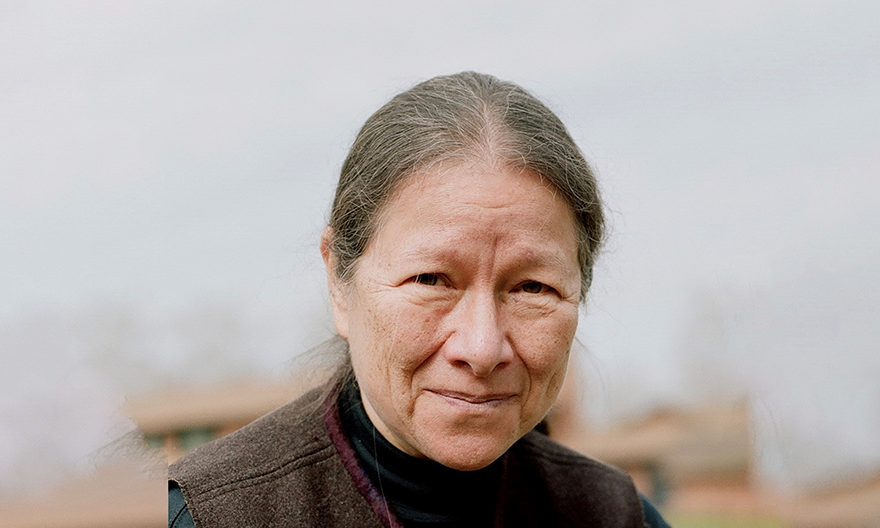
Anna Tsing
Professor of Anthropology, University of California, Santa Cruz, USA
I am excited to welcome the new Anthropology Department at ULM, a significant step forward in advancing education, research, and career development in the field of anthropology. This program will foster academic excellence and also opens a world of opportunities for its graduates in a wide range of professional fields.
As a discipline, anthropology asks big questions and teaches careful skills to bridge cultures, histories, and human experiences. Graduates of this program will possess a deep understanding of human societies, behavior, and cultures, making them valuable assets in today’s globalized world. The department is poised to equip students with critical thinking, research, and analytical skills that are in high demand across multiple sectors.
Career pathways for graduates will extend far beyond traditional academic roles. With a degree in anthropology, students can pursue careers in government and public policy, where they can advise on cultural preservation, human rights, and social justice. Graduates will be well-prepared to enter the non-profit sector, working with organizations dedicated to community development, humanitarian aid, and cultural exchange. The corporate world also offers career options in consumer research, marketing, and organizational management, where anthropological insights into human behavior are invaluable.
Additionally, Banjarmasin’s growing role as a hub for cultural exchange in Southeast Asia provides an exciting backdrop for students to engage in local and international opportunities. By collaborating with museums, heritage sites, research institutes, and local communities, students will have the chance to apply their knowledge and contribute meaningfully to preserving and understanding diverse cultures.
The establishment of this department is a forward-thinking move that ensures graduates will be equipped not only with a solid academic foundation but also with the practical skills and experience necessary to excel in a broad range of career opportunities. I fully support this exciting new initiative and look forward to seeing how it will shape the future of anthropology in Banjarmasin and beyond.
Anna Tsing
Professor of Anthropology
University of California, Santa Cruz, USA

Adrian Vickers
The establishment of the Anthropology Program at Lambung Mangkurat University is an important development for Indonesia. Whereas once Kalimantan was the object of research by outside anthropologists, now Indonesians, especially students and staff from Kalimantan, will have an opportunity to advance their perceptions of their own societies. This is a time when the importance of teaching and research in the Social Sciences and Humanities has never been more important globally. This new Program will be a corner-stone for the University as a whole.
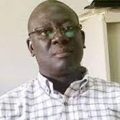
Prof. Ibrahima Thiaw
In our current epoch, marked by high-speed communication and rapidly changing technologies that abridge distances and challenge cultural identities globally, no field of scientific enquiry is more relevant than anthropology to attend to the anxieties of our time and to the future of our species and of our planet with care. Building on anthropology’s long-standing interests and multifaceted records on transformations and continuities at various scales and in different world regions, the new department anthropology at Universitas Lambung Mangkurat (Banjarmasin, South Kalimantan) is a unique opportunity for anthropologically informed interventions designed to monitor and propose credible solutions to policies and practices of governance that should be sensitive to local culture worldviews, needs, demands and aspirations for a better future in the respect of others in their difference. I am enthused this is happening in Indonesia and it is my upmost wish that its success will be contagious to other regions of the Global South.

Dr. Paul Hasan Thung
Anthropology is unique in its appreciation of diversity, helping us see the many ways in which people experience and shape the world. I began my studies in Forestry but turned to anthropology to engage more deeply with the people most intimately connected to the forest—by reading ethnographies and conducting long-term fieldwork. Now, as a social researcher for a conservation NGO, I use my anthropological skills to help our organization—and others—better support our community partners and their aspirations for the future. A strong anthropology program, like the one now launching at Universitas Lambung Mangkurat, equips students with tools to contribute to a prosperous and peaceful society. Whether in business, government, or civil society, anthropology fosters the critical and empathetic thinking needed to address the global challenges we face. I am excited to see this new department take shape and look forward to the important work its graduates will do.

Byron J. Good
We welcome the launch of the Program in Anthropology at Universitas Lambung Mangkurat. Located in such a diverse and critical setting for the future of Indonesia, this Department has an opportunity to make a special contribution to issues of local, national, and global importance. As a medical anthropologist, I am excited to see a focus on issues of the environment, disaster response, interactions between local healing traditions and professional medical care, and critical issues of health that face local communities in times of rapid social change. Preparing students to be active participants in and advocates for local involvement in health services and implementation of national policies can make a critical contribution to both ethnography and health of local communities.
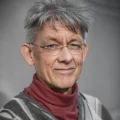
Gerry van Klinken
Kalimantan, long inhabited by indigenous people, is experiencing immense transformations. It is a frontier region of great interest to people from far away. Anthropologists are better equipped than anyone else to understand these enormous changes from the human point of view. Universitas Lambung Mangkurat now has an anthropology department. That is fantastic news for everyone with a heart for this magnificent region. The bridges of understanding its scholars will build are desperately needed.
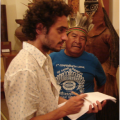
Luiz Costa
Anthropology builds on the creativity and depth of human diversity; it investigates what we have in common and what makes us different, but, equally, addresses and tackles contemporary concerns and plans for future contingencies. In recent decades, much of this work has been carried out by scholars in the so-called Global South, where anthropology thrives as a discipline that is particularly well-equipped to consolidate an immense archive of local knowledge and to meet the demands of a rapidly changing world. For South American anthropology, it is truly fantastic news to learn that we can now count on the anthropology department at the Universitas Lambung Mangkurat as an ally and interlocutor in this ongoing conversation.

Keir Martin
I was very pleased to hear the news of the establishment of a new department of anthropology in Banjarmasin. Anthropology is committed to a deeper understanding of human societies, cultures and their histories. At a time of increasing global tension and misunderstandings, such a discipline remains as vitally important as ever. Anthropology is more than an academic discipline; it is a lens through which we can better understand our rapidly changing world. The study of anthropology provides students with valuable skills in critical thinking, cultural sensitivity, and analytical research; all of which are increasingly important in working life after graduation. Anthropology graduates are well prepared for a variety of career paths, including public policy, international development, education, and cultural resource management. I hope that the new department at Banjarmasin will become a centre for the development of a new generation of students and researchers able to make a valuable contribution to public debate and understanding of how we live today.

Kristina Großmann
I am delighted that the Universitas Lambung Mangkurat in Banjarmasin establishes a new Department of Anthropology. I am convinced that this department will serve as a vital academic hub to explore and understand the complexities of societies, politics and the environment in Kalimantan and beyond. This new department will not only enrich the intellectual landscape but will also prepare students to engage meaningfully with the world around them. Anthropology contributes with in-depth knowledge and an interdisciplinary approach to better understand socio-cultural processes in a rapidly changing world. I am looking forward to the significant contributions of the Department of Anthropology at the Universitas Lambung Mangkurat shaping the next generation of scholars and practitioners.
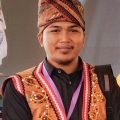
RUBI
Aliansi Masyarakat Adat kalimantan Selatan menyambut gembira berdirinya Prodi Antropologi di Fakultas Ilmu Sosial dan Ilmu Politik ULM. Kami percaya, berdirinya antropologi di ULM dapat menghasilkan tenaga-tenaga profesional yang mampu memahami harapan masyarakat adat dalam memperjuangkan hak-haknya, melestarikan kebudayaannya serta memecahkan berbagai masalah dan tantangan sosial-kultural ke depan.
Peran antropologi sangat penting dalam memahami masyarakat adat, mendorong pengakuan atas hak-hak masyarakat adat serta membantu masyarakat adat dalam memperjuangkan hak politik, ekonomi, dan sosial-kultural. Antropologi sangat penting bagi masyarakat multikultural di Kalimantan yang sedang membangun. Antropologi di ULM kami harapkan dapat menjadi pendorong seluruh komponen masyarakat untuk lebih memahami kehidupan sosial budaya masyarakat adat serta meningkatkan kepedulian terhadap masalah-masalah ekologis dan sosial budaya sebagai dampak pembangunan naaional.
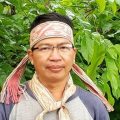
Dr. Marko Mahin, MA
Kalimantan adalah arena kebudayaan yang bergerak dinamis dengan cepat. Kedatangan manusia dari berbagai penjuru dunia telah mendorong paksa orang-orang Kalimantan untuk beradaptasi dan berstrategi dengan membangun kebudayaan baru yaitu kebudayaan hibrid dengan tujuan agar mereka tidak tumpas-musnah dalam cepatnya gerak zaman. Antropologi adalah ilmu yang tepat untuk memahami secara mendalam fenomena ini, sehingga tidak terjadi kesalahan dalam memahami manusia Kalimantan dan penyusunan kebijakan pembangunan di Kalimantan. Dengan penuh kegembiraan, saya menyambut baik pendirian Prodi Antropologi di FISIP ULM dan mendorong semua calon mahasiswa, secara khusus anak-anak Kalimantan untuk dapat menuntut ilmu dan mengembangkan ilmu tentang kebudayaan di Kalimantan di Prodi Antropologi di FISIP ULM.

Henk Schulte Nordholt
Anthropology offers tools to learn how ordinary people live their daily lives and to understand their concerns. These concerns should be the cornerstones of anthropological analysis and ideally inform policy decisions. Anthropology departments at local universities, like Universitas Lambung Mangkurat in Banjarmasin are the best equipped places to initiate this kind of research and to put the outcomes at local and regional policy agendas. Giving voice to the worldviews and concerns of ordinary people serves to combat top-down stereotypes about people who are ‘still ignorant or ‘not yet developed’. Worldwide, anthropologists make similar efforts to help ordinary and usually less powerful people to raise their voice.

Blair Palmer, PhD
Indonesia needs more Anthropologists, for two reasons. First, Indonesia is incredibly rich in ethnic and linguistic diversity, with a vibrant history of interaction between societies, and a nationalism built on this unity in diversity. Second, Indonesia is a key arena where global challenges in balancing resource extraction with environmental protection, corporate profits with sustainable development, and national political and economic priorities with international collaboration on climate change mitigation, play out – and these dynamics are of critical importance for the future of Kalimantan in particular. A new generation of Anthropologists trained at Universitas Lambung Mangkurat in Kalimantan will be able to contribute vital social perspectives that inform how we address these challenges – and how we ensure that the challenges and needs of local communities, as well as the next generation of citizens, are fully considered.

Prof Dr Thomas Reuter
Kalimantan has undergone rapid and often unplanned development and its culturally diverse traditional societies have been stressed by this rapid change. As this process continues, many new challenges keep arising. Anyone with a genuine interest in doing development better in this region must welcome the establishment of a new department of Anthropology in Banjarmasin. Anthropologists are uniquely qualified to study the impact of development at a local level, and in a holistic, systematic way. The attainment of positive outcomes, from sustainability to prosperity, social stability and justice, depends on the better understanding of socio-ecological systems that anthropologists can provide. I have no doubt the new department will make an invaluable contribution to the future of Kalimantan, and engage in many constructive partnerships across all stakeholder groups.

Margaret J. Wiener
The opening of a new Department of Anthropology at Universitas Lambung Mangkurat in Banjarmasin provides an exciting opportunity to bring greater attention to this field of study in Indonesia, a country abundant in diverse natures and cultures. Anthropology is unique in several ways. Methodologically, it combines careful attention to what people do and say (thought field observations as well as thought analyzing texts) with concepts, in order not only to describe human experience, past and present, but to challenge what often is taken for granted. It is also unusually interdisciplinary, crossing divides among the social sciences (where it finds a home), humanities (such as literature and philosophy0, and natural sciences (especially ecology and biology). This makes it especially suitable for engaging contemporary issues, from pandemics to climate change and other threats to the web of life
on which humans depend,
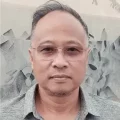
Engseng Ho
The opening of the new Department of Anthropology at Universitas Lambung Mangkurat is a great news. Anthropology is about research: the most useful skill an ambitious student could study in the University. If you are interested in business strategy, marketing, management, NGOs, politics, social welfare, anthropological research teaches you how to: define a problem by identifying key questions; find and analyze evidence to answer the questions; decide on the solution. These skills will make you a valuable player and asset in any organization you join in your future career.

Yasmeen Arif
The new anthropology department in Universitas Lambung Mangkurat is a matter of celebration in todays’ urgent need for deep understanding of grounded knowledge and its place across cultures. In a world connected by global issues of health, climate, precarity, technology and more, students of anthropology provide the vital link of comparison and embeddedness. As a potential skilled workforce, they bring the vital substance of social knowledge to any profession. Anthropological training in Indonesia, enriched and informed by that rich cultural, historical and social environment can only be an asset for the future of knowledge production in Indonesia, in Asia and beyond.
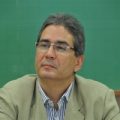
Gustavo Lins Ribeiro
The opening of a new Anthropology Department at Universitas Lambung Mangkurat is great news! Indonesia, with its complex ethnic segmentation, environmental issues and geopolitical location, needs more and more anthropologists to deal with her challenges. Peace is anthropology’s metanarrative and I am sure that well trained anthropologists can make fundamental contributions to the construction of a better world in the current juncture.

Ketevan Gurchiani
The establishment of a new Department of Anthropology at Universitas Lambung Mangkurat is a significant and timely development. For too long, the regions where anthropologists have traditionally worked have been underrepresented in shaping the discipline itself. This development marks a shift that recognizes the importance of local scholars in the production of knowledge for the discipline of anthropology. The new department will not only contribute to Indonesian scholarship, but also enrich anthropology more broadly with new perspectives and critical insights. With its deep roots in ethnographic research, anthropology equips students to critically engage with issues of culture, language, identity and social change, both within their communities and in the wider world.

Greg Acciaioli
After decades of anthropology being taught within other programmes, the establishment of a
discipline-specific study program in anthropology at Lambung Mangkurat University in South
Kalimantan provides an impressive curriculum for developing well-rounded anthropologists with a
solid understanding of both the discipline as a whole and the analytical approaches of various
subdisciplines. The new curriculum aptly balances theoretical depth with training in both traditional
and innovative methods, emphasizing the contribution of ethnography to engaging with real world
issues. Its comprehensive coverage will undoubtedly produce knowledgeable graduates equipped
with the skills to contribute to the development of the local region, the island and the nation.

Alcida Rita Ramos
It is very pleasing to hear about the creation of your department of anthropology at Universitas Lambung Mangkurat, a very welcome new partner to the world of alternative anthropologies. Of special significance in building a new partnership is your focus on the public realm and your concern with the careers of future professionals. It is indeed a very valuable addition to the effort of many anthropological centers in the so-called Global South to make the discipline more publicly relevant without renouncing academic excellence.
Congratulations! From Brazil I wish the best of luck to our Indonesian colleagues and hope we will engage in a productive and long-lasting dialogue. We have much to say to each other regarding the role of anthropology in shaping a new “world otherwise.”

Patrícia Ferraz de Matos, Ph.D
The opening of an anthropology department is always good news. The fact that this opening takes place at the Universitas Lambung Mangkurat in Indonesia and in the current world context (where extremist forces seem to be growing) makes it even more special. We need anthropology more than ever, because (in dialogue with other disciplines) it provides special skills for understanding and acting in the present. In addition to reflecting on where and how the human species came to be (along with other animals and nature), anthropology allows us to understand human diversity in its multiple existences, strengths and challenges. This will undoubtedly stimulate new students and help them to deconstruct prejudices, understand their place in the world and their role in the future (recognising the importance of language, respect for cultural, political and religious differences) in terms of establishing dialogues, negotiating between peers, managing conflicts and implementing inclusive and sustainable initiatives.
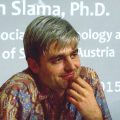
Martin Slama
I was delighted when I received the news that Indonesia’s vibrant anthropological community has been strengthend with the establishment of a department of anthropology at Universitas Lambung Mangkurat (ULM) in Banjarmasin. Anthropologists have been active at this leading university of South Kalimantan already for longer and, for example, co-organized the international symposium of the Jurnal Antropologi Indonesia at ULM in 2008, of which I still have fond memories. The foundation of a department of anthropology thus appears as a logical next step and is certainly a great achievement of all those who have been involved in this process. I am convinced that ULM – and South Kalimantan as a whole – will greatly benefit from the teaching and research that will be done at this new anthropology department. I expect it will position itself well in the Indonesian and international academic landscape, and I wish its lecturers and students all the best for their academic endeavors!

Andrew Byron Kipnis
Now is a great time for anthropology in Indonesia. Indonesia is simultaneously one of the most diverse societies in the world, a rapidly changing and modernizing society and a vibrant democracy. Anthropology, with its focus on how people actually live, what they do at workplaces, at schools, at religious institutions and at home, how they interact with family and strangers, what they eat, observe, think about, and play gives us a holistic view of life that is absolutely crucial for those devising policies in government, at schools, in hospitals and in workplaces, for social activists designing programs for change and business owners selling products, and for people trying to find their place in a rapidly changing world. The new department at Universitas Lambung Mangkurat is ideally situated to contribute to anthropological understandings of a diverse, complex and rapidly changing Indonesia.

Timo Kaartinen
Comparative anthropological research of different forms of social life is essential for pursuing sustainable development and socio-ecological justice. Anthropologists are interested in human relationships and problems of concrete life, and training in anthropology creates skills in problem-solving and interaction. These skills give anthropologists an edge in different kinds of expert work: as civil servants, consultants, and increasingly as employees of commercial companies. I am excited that Universitas Lambung Mangkurat is starting an anthropology program. It will increase understanding about the history and diversity of South Kalimantan and provide wisdom for steering the future development of
the province and Indonesia in general.
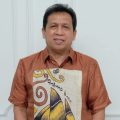
Pawennari Hijjang
Universitas Lambung Mangkurat adalah benih dari cita-cita estafet Antropologi di Indonesia. Tentu saja terbentuknya Prodi Antropologi adalah tekad dan kerja keras kita semua, Saya masih ingat sekali perasaan penuh harapan saat mulai terlibat dalam menginisiasinya. Entah dari mana datangnya optimisme itu, tetapi saya sangat yakin prodi ini pasti berdiri. Tentu saja, lanskap sosial-budaya Kalimantan, khususnya Kalimantan Selatan tidak ada habis-habisnya untuk dikaji secara antropologis; komposisi etnisitas dan sub-etnis, isu dialektika akses sumber daya, hingga konflik dapat menjadi prioritas-prioritas penciri studi di sana.
Sebagai bagian dari kolega akademisi, kerabat asosiasi, dan atas nama pribadi, Saya mengucapkan salamat kepada Prodi Antropologi Fakultas Ilmu Sosial dan Ilmu Politik Universitas Lambung Mangkurat. Semoga terus berkembang, bertumbuh menjadi tempat lahir para antropolog hebat di masa depan.
Salam hangat dari Makassar

Deborah Durham
The study of anthropology informs and enriches almost every field of human endeavor, from architecture and engineering to entrepreneurship and business organization to governance and international relations to medical care and research and to domestic and community relationships. Anthropology teaches us both to respect people from different backgrounds, and to recognize the problems they encounter in their terms, as well as how to work together with them to solve those problems and to attain new goals. The anthropology department at the Universitas Lambung Mangkurat is sure to enrich the entire academic program, and to give its students the insights and tools to thrive themselves and, more importantly, the tools to work towards a world in which diverse people may achieve dignity and security in their goals.

Alexandra Palmer, Ph.D
How can Indonesia, and the world, develop in a way that is both environmentally sustainable and supported by diverse cultures? Training in anthropology equips students with critical thinking skills and an appreciation for, and understanding of, how other peoples and cultures think, making them ideally placed to answer this and other key questions for the 21st Century. These skills are particularly important in Indonesia given the country’s unique environment and cultural diversity. The opening of an anthropology department at the Universitas Lambung Mangkurat is therefore exciting news.

Patricia Spyer
I am thrilled to hear the news of the opening of the new Department of Anthropology at University Lambung Mangkurat in Banjarmasin, South Kalimantan. The importance of anthropological knowledge and approaches to confronting the many challenging social, cultural, political, and environmental issues of our time cannot be underestimated. Students who go through the program will be equipped with the skills and open, inquisitive attitude that will enable them to work in a variety of fields and build sustainable careers.

Tom Boellstorff
It is wonderful news that a Department of Anthropology has been established at Universitas Lambung Mangkurat! Anthropology has a crucial role to play in understanding our world and changing it for the better. From climate change to social inequality, from health to globalization, from the legacies of history to the promises and perils of new technology, anthropology can help us investigate diverse forms of selfhood and society. This new department joins an “archipelago” of excellent departments of anthropology across the nation, and I look forward to its contributions to Indonesia, to Southeast Asia, and to our interconnected world.
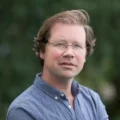
Ward Berenschot
I congratulate the Universitas Lambung Mangkurat with establishing a new anthropology department. Given Indonesia’s vast complexity and ever-changing landscape, fostering a new wave of anthropologists is essential. Anthropology stands out as the discipline uniquely positioned to unravel the intricate connections between cultures, languages, economies, health systems, ecosystems, and social structures. Moreover, it empowers students with limitless possibilities to envision creative solutions and make meaningful contributions to society, making it one of the most promising and impactful fields of study.

Heike Becker
As anthropologists we are deeply aware of the need for careful analyses of socially complex dynamics. Such analyses require the painstaking, empirically founded exploration of the historical, social, and political situatedness of human life. Anthropological methods with their close attention to fieldwork close to the people are exceptionally well-suited to address this. The new Anthropology programme in Banjarmasin will be of immense importance to highlight human origins, practices and societies, which is the discipline’s key concern. At its core Anthropology has been concerned with people’s shared humanity but it has also been interested in the differences of the human experience, including explorations of race and racism, gender and sexuality, and social inequality. This has been central to the history of anthropology. In the 21st century, these questions have become special concerns again in contemporary efforts to renew the discipline from Global South perspectives with the aim of creating a truly global anthropology.

Andre Gingrich
The founding of a new department of anthropology at Universitas Lambung Mangkurat in Banjarmasin, South Kalimantan is an important step forward not only within Indonesia’s academy but on a much wider level, in Southeast Asia and beyond. Anthropology is the crucial research field to combine a detailed understanding of local issues with dimensions of wider national and global significance. For every new student generation, this will open up important career pathways for the pursuit of relevant local topics together with those most
pressing for humanity.

Rupert Stasch
Anthropology is a critical scientific discipline for understanding the future of Kalimantan and Indonesia. This subject combines the distinctive research method of ethnographic fieldwork with the classic, world-revealing insights of social theory. I am delighted that there is now a Department of Anthropology at ULM. Students who study in this department will play important future roles in improving the quality of civil society processes in Kalimantan Selatan, and improving public understanding of grassroots social life across the region’s diverse communities. They will also gain academic and practical skills relevant to a wide range of professional careers.
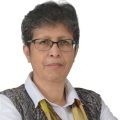
Suraya A. Afiff
Patut kita bersyukur akhirnya Universitas Lambung Mangkurat (ULM) dapat membuka progam studi di bidang antropologi. Hadirnya bidang studi antropologi di bumi Kalimantan adalah sesuatu yang sudah lama ditunggu, oleh karena itu perlu kita dukung. Kalimantan memiliki keanekaragaman budaya yang kaya. Semoga lulusan yang nanti dihasilkan dari program studi antropologi ini akan dapat meningkatkan pemahaman kita akan keragaman praktek budaya lokal serta dinamika transformasinya di tengah arus modernisasi. Penelitian yang nantinya dihasilkan semoga dapat memberikan kontribusi tidak hanya pada pengembangan ilmu pengetahuan antropologi secara umum, tetapi juga secara relevan dapat membantu masyarakat Kalimantan untuk semakin menghargai identitas mereka sendiri.Dukungan dari semua pihak bagi perkembangan program studi antropologi di ULM akan memberikan kontribusi yang signifikan bagi kemajuan masyarakat di Kalimantan. Saya, mewakili para kerabat di Asosiasi Antropologi Indonesia (AAI) sekali lagi mengucapkan selamat. Kami berharap pengembangan prodi ini lancar dan sukses!
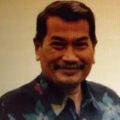
Abdul Latif Bustami
Kalimantan Bumi Kaya budaya dan penuh dinamika. Antropologi sangat dibutuhkan untuk memberikan solusi Budaya yang kontekstual. Prodi Antropologi ULM melayani, belajar bersama untuk pemajuan kebudayaan dan pembangunan berkelanjutan Indonesia.

Webb Keane
The founding of a new department of anthropology in Banjarmasin is very good news indeed. In a country as complex and dynamic as Indonesia, a new generation of anthropologists is a vital necessity. No other field of study is as well equipped not just to deepen our understanding of cultures, languages, economics, health, ecosystems, and social systems, but also to explore the many ways they are tied together into a greater whole. And no other scientific and scholarly discipline offers its students a future as open to the imagination and as rich in opportunities to contribute to society as anthropology.
Program Studi Antropologi ULM terbuka bagi lulusan SMA/SMK/MA atau sederajat. Pendaftaran tersedia setiap awal hingga pertengahan tahun melalui jalur nasional (SNBP & SNBT) serta jalur mandiri ULM.


